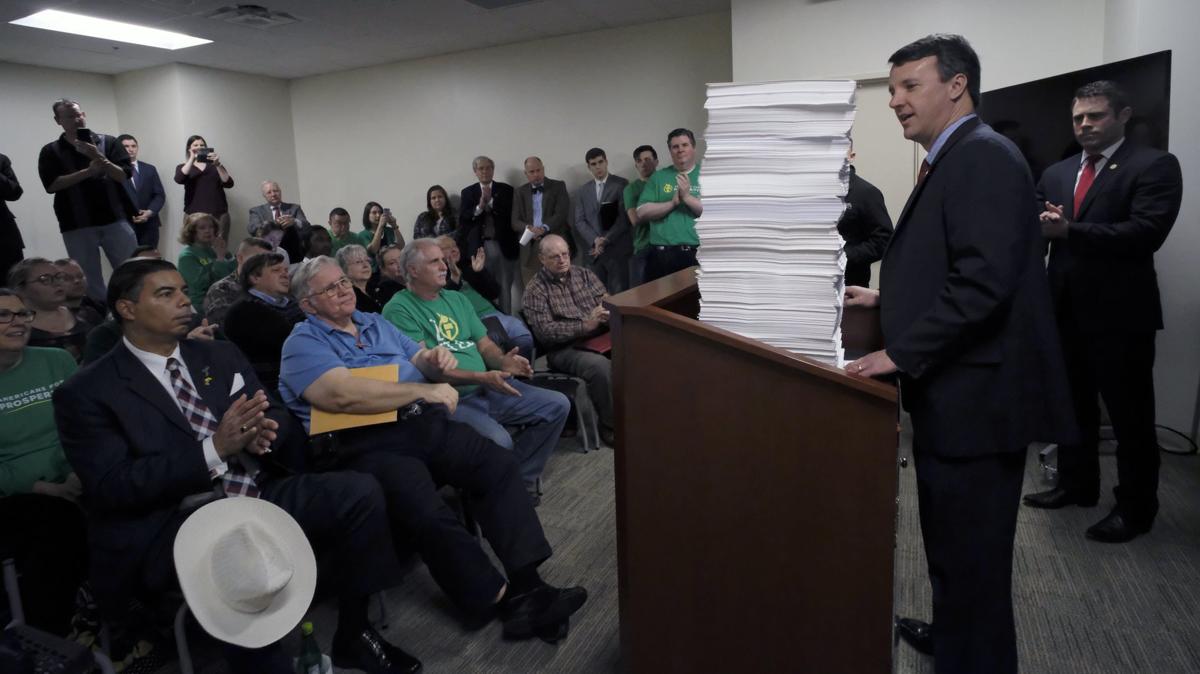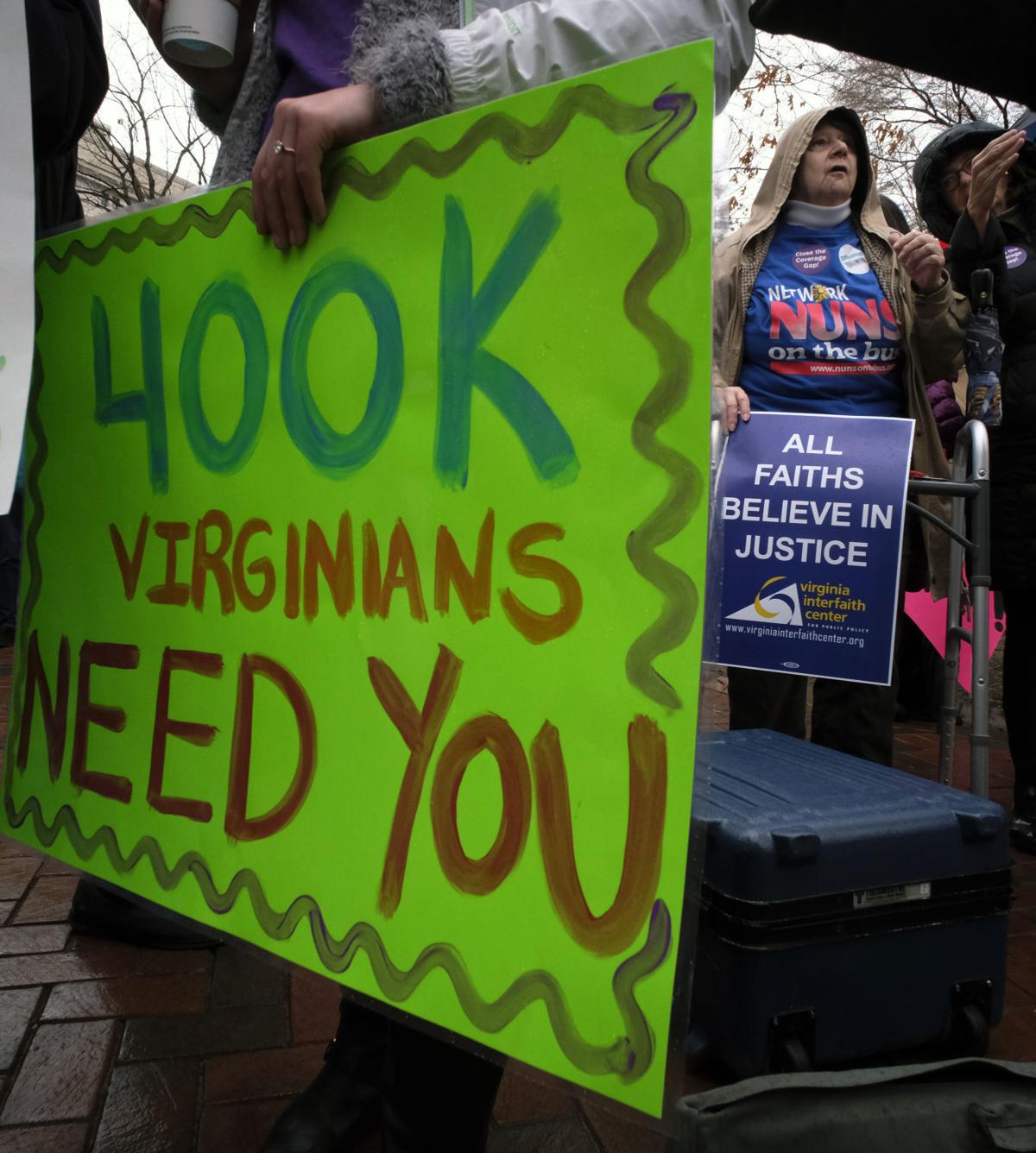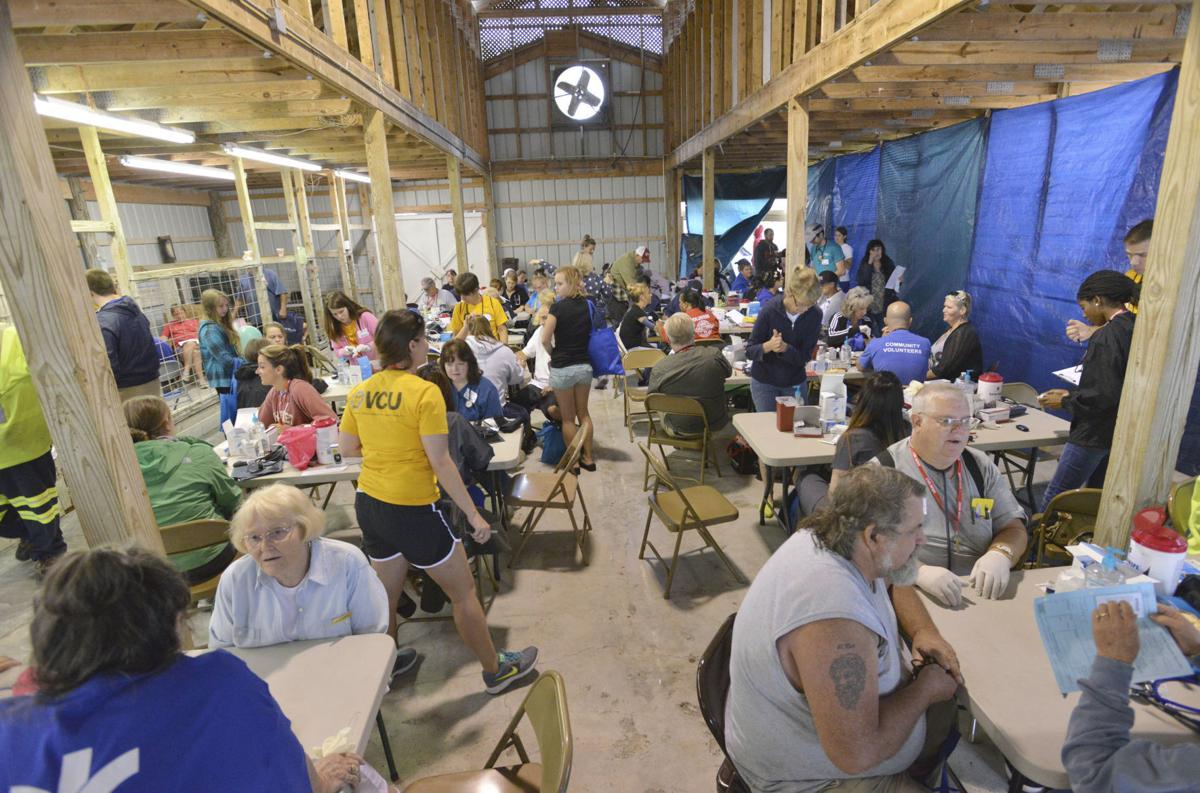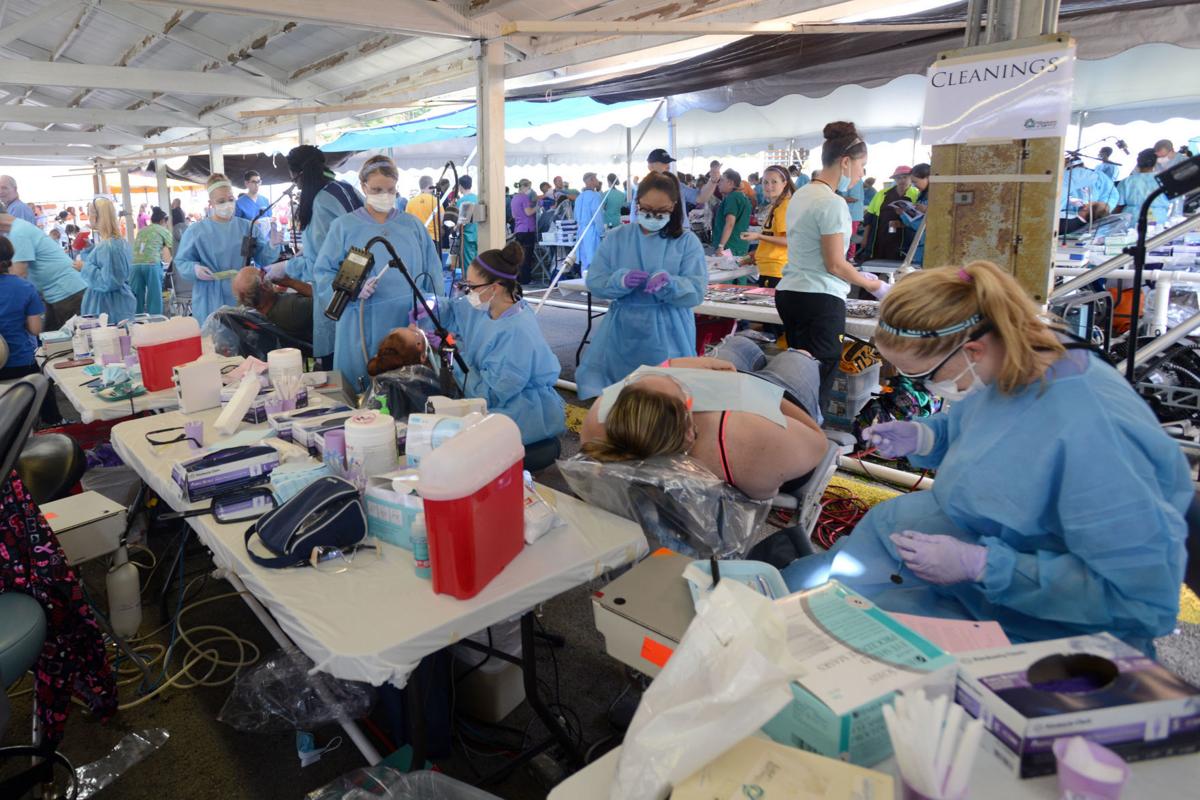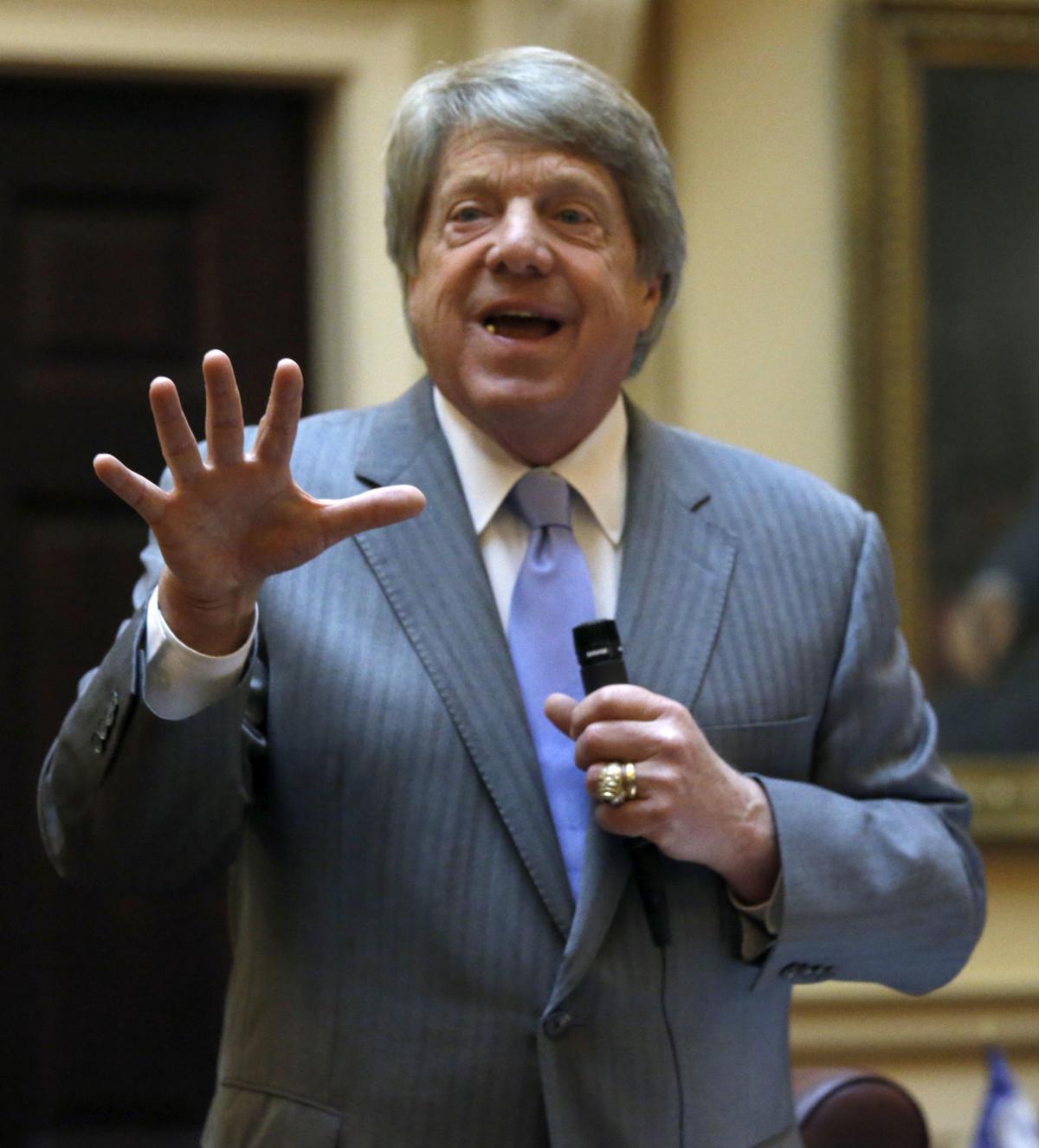With less than a week before the General Assembly convenes for a special session on the unfinished state budget, the new firewall against Medicaid expansion in the Virginia Senate appears to be losing a couple of bricks.
Two Republican senators said this week that they’re willing to vote for a budget that expands health care coverage for uninsured Virginians under Medicaid in return for concessions from the House of Delegates to help people afford commercial insurance and a stronger requirement for recipients to engage in some form of work or study.
Senate Finance Co-Chairman Emmett Hanger, R-Augusta, made clear that he expects the two-year budget to include enhanced federal funding to expand health care coverage under the Affordable Care Act.
“I have no intention of voting for a final budget that doesn’t include accessing the additional federal money,” Hanger said in an interview Thursday.
Sen. Frank Wagner, R-Virginia Beach, issued an opinion column Friday that calls for the General Assembly to help Virginians who would receive health coverage by expanding Medicaid eligibility to those who earn up to 138 percent of the federal poverty level — or less than $17,000 a year — and Virginians who wouldn’t quality but can’t afford private insurance.
“I believe we can and we should help both groups of Virginians,” Wagner said in the column, distributed Friday.
Both Republican senators also appear to be moving toward support of a “provider assessment” that taxes hospital revenues, as long as the money is used, at least in part, to help people purchase private insurance either through the federally operated marketplace or the commercial market.
Wagner proposed to help middle-income families with a $250 tax credit that would be paid by about half of the $307 million that would be generated by the provider tax in the two-year budget, but his Senate Republican colleagues derided the proposal as “neither well-conceived nor well-designed.”
“The statement released today by Senator Wagner does not alter the current dynamic regarding the budget impasse,” the Senate Republican leadership said in a joint statement Friday.
The House budget, supported by Gov. Ralph Northam, would expand Medicaid and use the provider tax to pay the state’s share of the cost, which would rise from 7 to 10 percent in 2020. The House then would use $371 million in projected savings from replacing state dollars with federal money under the Affordable Care Act to invest in K-12, higher education, employee raises and economic development.
Previously, Hanger has opposed a provider tax to pay the state’s share of the costs of expanding Medicaid, even though his Republican colleagues on two Senate committees voted in favor of a similar assessment to pay for a range of expanded services under the current Medicaid program. Ultimately, the tax was dropped from the legislation, proposed by Sen. Siobhan Dunnavant, R-Henrico, but the expanded services were included in the Senate budget without a way to pay for them.
However, Hanger said Thursday that he would consider supporting the provider assessment if the money were invested in health care, including ways to help Virginians who wouldn’t qualify for Medicaid or federal premium subsidies in the insurance marketplace. He outlined his specific goals in an opinion column, also released Friday, that praised the House for changing its position on Medicaid expansion after five years of opposing it.
“Now that the House has demonstrated that leadership, we have the opportunity to create a broad plan that” meets those goals, he wrote.
The Virginia Hospital & Healthcare Association issued a statement maintaining the position it has held since first agreeing in late 2015 with then-Gov. Terry McAuliffe to the concept of a provider tax to help pay for Medicaid expansion.
“While we have traditionally opposed the provider assessment concept, Virginia’s hospital community is willing to consider an assessment in an effort to support a compromise on coverage expansion,” spokesman Julian Walker said in a statement. “It is imperative, however, that statutory protections be in place to ensure that money raised from such an assessment is used solely for Medicaid reimbursement and rate improvement.”
The association has been pushing to use the assessment to raise the Medicaid reimbursement rate to hospitals, currently at 71 percent of costs, as Dunnavant initially proposed in her legislation and the Senate budget.
Walker also said Wagner had “identified a critical issue facing Virginia families and businesses today — the ever escalating growth in health insurance premiums. This is a true kitchen table, quality-of-life issue for Virginians.”
He noted that prices charged by hospitals and physicians had risen by 1 to 2 percent in the past year, while insurance premiums in the individual market had increased by 34 to 81 percent. “We look forward to working with Senator Wagner to address this incongruity,” Walker said.
However, Hanger said his goals include increasing regulatory oversight of health care systems and insurance companies that he described as “operating in close to monopoly marketplaces.”
“I think there are things we can do with big hospitals and big insurers both,” he said in the interview Thursday.
In addition to helping middle-income Virginians afford private insurance, Hanger and Wagner want to see Medicaid reforms that include a work requirement and ways to allow families to increase their income without automatically losing their health benefits.
The House budget includes a work requirement through the Training, Education and Employment Opportunity Program, but Senate Republicans rejected the proposal as a “work suggestion.”
Hanger said he doesn’t have a problem with the House work proposal, but he said the legislature needs to fashion a better way to carry it out. “We need some flesh on the bones in terms of exactly how we do this,” he said.
Wagner called for a “firm work requirement for able-bodied adult Medicaid recipients,” who would become eligible for Medicaid benefits that have not been available to childless adults in Virginia, no matter how poor.
He also proposed to seek federal approval of a plan “to eliminate the Medicaid cliff and allow the working poor to continue to improve their position in life, without losing their benefits.”
